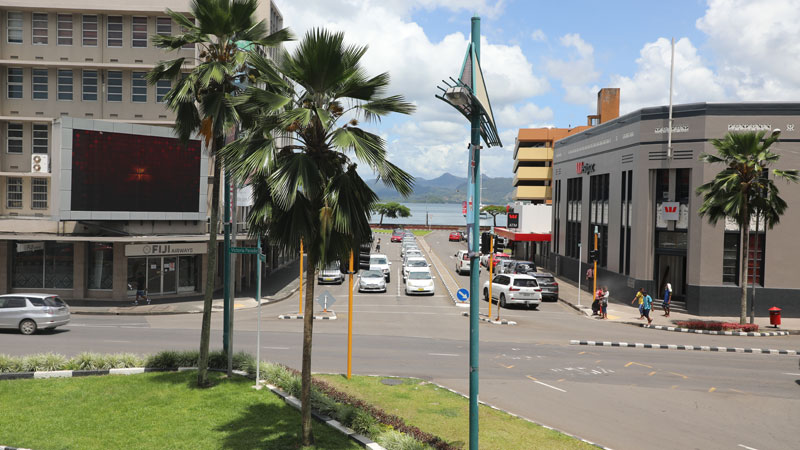
192,977 iTaukei, 58,933 Indo Fijians and 6,143 from the others population makeup living in absolute poverty.
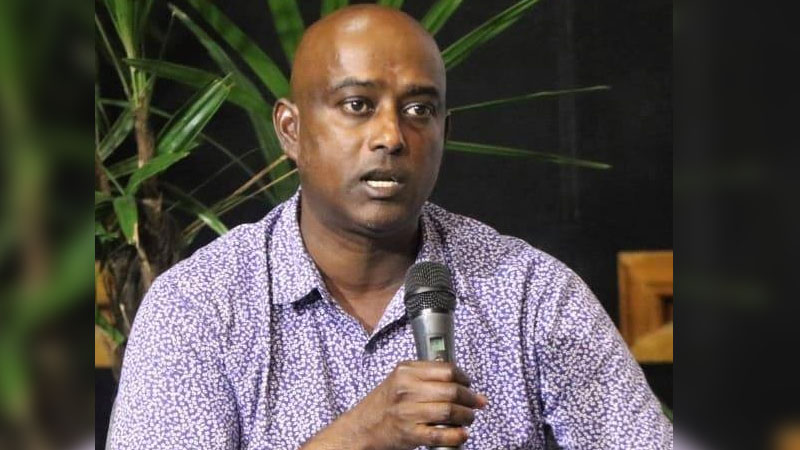
University of the South Pacific economist, Doctor Neelesh Gounder says the poverty estimates released by the Fiji Bureau of Statisics in the 2019/2020 Household Income and Expenditure Survey is credible and can be relied upon.
Doctor Gounder says based on the work he has done previously using survey data, the methodology and sampling that has been used by the Bureau should provide a good representation of the population of Fijian families.
He says taking together the methodology and the survey of 6,000 households, it is a good sample size to make a conclusion about the population.
Doctor Gounder says from this perspective, the poverty estimates is reliable.
He also says that the ethnic data that was released in the Household Income and Expenditure Survey has got nothing to do with the ethnic data which may or may not have been collected in the 2017 census.
Doctor Gounder says if one understands the nature of how these surveys are conducted, they will recognize that the ethnic data is not collected just by looking at just one member of the family.
He adds the enumerator would normally make several visits to the household to collect data over a 12 month period and during this time the enumerator will get to know the members more closely. Gounder says sub-population such as ethnicity, gender, religion or even age group is important because if we just collect data on the overall population, then we cannot make specific conclusions about the different sub-population categories.
The economist also says that since this survey was done pre-COVID and given the massive economic impact of the pandemic, he is estimating that the poverty rate has increased from 29% to somewhere between 40 to 50%.
Doctor Gounder adds it seems that the government wants to avoid race-based policies that may eventuate from the availability of ethnic data.
However he says recognizing diversity based on ethnicity does not necessarily mean that it should lead to policies based on ethnicity.

Fiji Women’s Crisis Centre Coordinator and member of the Fiji CSO Alliance, Shamima Ali is calling on the Prime Minister to immediately sack Attorney General, Aiyaz Sayed-Khaiyum because at end of the day, the actions of his ministers, good or bad, is a direct reflection on the Prime Minister’s leadership.
Following the sacking of the CEO of Fiji Bureau of Statistics, Ali says it would be even better if the Minister of many portfolios does the right thing and resigns for the good of Fiji.
Shamima Ali says the termination of the CEO of the Fiji Bureau of Statistics employment contract by the Ministry of Economy’s acting Permanent Secretary is draconian from a government that has lost credibility and is in chaos.
She says Kemueli Naiqama was unceremoniously dismissed and escorted off the premises by a few men for allegedly releasing data based on ethnicity from the Household Income and Expenditure Survey (HIES), which detailed the extent of poverty in the country.
Ali says in other democracies, the Bureau of Statistics operates independently of government and ministerial influence and is protected and safeguarded for the work it does in producing official statistics that serves as a compass to shape and guide development policies in areas like social protection, basic infrastructure, local economic development, water and sanitation, housing, health and help create a just and fair society.
She questions the Economy Ministry’s rationale behind the termination and questions what was wrong in releasing data based on ethnicity.
Ali says our citizens have a right to know data based on ethnicity or any data for instance that is collected by a taxpayer-funded office for the good of the people.
The Women’s Crisis Centre Coordinator says a public office holder and Fiji’s chief statistician who has contributed so much towards the country through his work has been sent home for telling the truth and just because he did not do his work the AG’s way.
She says it’s either the AG’s way or the highway.
Ali says in a democracy, one does not get rid of people without due process and especially in the civil service.
The political activist says this country is fed up of Aiyaz Sayed-Khaiyum’s rhetoric, incompetency and childish behavior.
Ali says says the AG has to stop behaving like a spoilt brat when things do not go his way.
She also says it’s like if the AG doesn’t like you, or if you fail to follow his directives, you can be sacked, arrested or worse, deported.
Ali reminds the Minister of many portfolios that he has been elected to serve the people of the country and he serves at the pleasure of the voters.
We have sent questions to the Prime Minister and the Attorney General asking for comments regarding the call made by Shamima Ali. They are yet to respond.
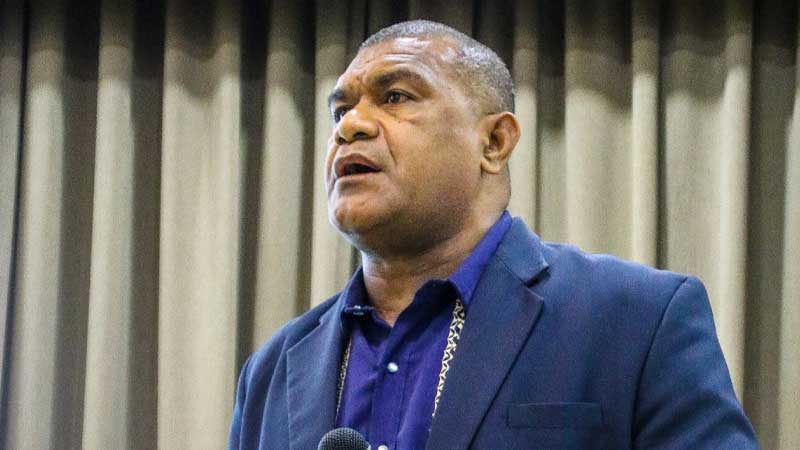
The CEO of the Fiji Bureau of Statistics, Kemueli Naiqama has been sacked.
A government statement now says the Ministry of Economy, through the Acting Permanent Secretary, Shiri Goundar has terminated the contract of the CEO of the Fiji Bureau of Statistics, for failure to comply with Section 5 of the Statistics Act 1961.
The statement says in an unfortunate blow to the Bureau’s credibility, Naiqama endorsed the publication of unverifiable information in the Housing Income and Expenditure Survey 2019-2020 relating to ethnicity and religion – data that was revealed to be extrapolated from erroneous sources and which exceeded the established scope of the survey’s data collection.
It says by exceeding the scope of data collection and ignoring fact-based methodology, Naiqama breached the terms of his contract with the Ministry.
Under his employment contract, Naiqama will be paid all salary and accrued entitlements for the period up to 15th September 2021.
We have received information that some officials escorted Naiqama out of his office earlier this afternoon.
Calls made to his office were referred to the Ministry of Economy.
Last night, Minister for Economy, Aiyaz Sayed-Khaiyum raised serious concerns about the ethnic and religious data released by the Fiji Bureau of Statistics in the 2019-2020 Household Income and Expenditure Survey.
Sayed-Khaiyum says CEO of the Fiji Bureau of Statistics has not acted in line with government policy and the law.
The Minister says there was a sample of 6,000 households from 199,688 households which is 3 percent of the population. He says the question that needs to be asked is how was the sample size derived from the 6,000 households on the basis of ethnicity.
Sayed-Khaiyum says the 2017 census data was used as a survey frame although the 2017 census had no reliable ethnic data, which make these statistics unreliable.
The Attorney General says the report is flawed.
We have been unable to get comments from Naiqama.
Under the Statistics Act 1961 which was updated in 2016, the Minister for Economy appoints the Government Statistician.
Section 5 of the Act also says that with the approval and following the direction of the Minister for Economy, the Government Statistician shall collect statistics relating to any matter listed in a schedule in the act.
The Fiji Bureau of Statistics 2019-2020 Household Income and Expenditure Survey confirms 29.9 percent of Fijians, or about 258,000 individuals in 45,724 households, lived under the Basic Needs Poverty Line of $41.91 per adult equivalent per week.
This means that three out of ten Fijians were living in poverty in 2019-2020, with rural poverty still much higher than urban poverty.
According to the Bureau of Statistics, 160,450 people in rural areas are living in absolute poverty while 97,602 people in urban areas are living in absolute poverty.
The bureau says poverty was higher in rural areas standing at 41.5 percent than urban areas at 20.4 percent, with 62.2 percent of the poor living in rural areas.
Based on the bureau’s poverty estimates and distribution, 192,977 iTaukei, 58,933 Indo Fijians and 6,143 from the others population makeup are living in absolute poverty. This means the iTaukei made up 74.8 percent of those people living in absolute poverty, Indo Fijians made up 22.8 percent while other communities made up 2.4 percent. It has also been revealed that 134,060 males and 123,992 females were living in absolute poverty when the survey was conducted from February 2019 to February last year.
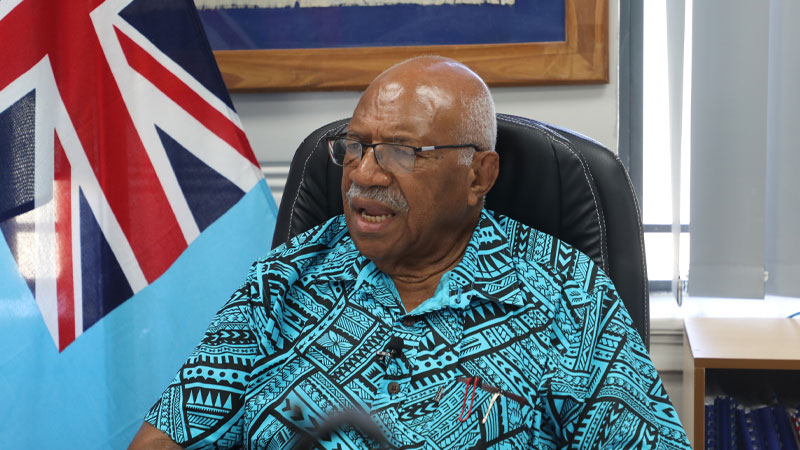
People’s Alliance Party Leader, Sitiveni Rabuka has branded the Attorney General, Aiyaz Sayed-Khaiyum’s outbursts as stupid after Sayed-Khaiyum’s comments regarding the Fiji Bureau of Statistics and it’s 2019-2020 Household Income and Expenditure Survey.
Rabuka says Sayed-Khaiyum should not just go around blasting people whenever information is revealed.
The former Prime Minister says it is sad to see the government does not agree with the statistics done by it’s own people.
He also says it is concerning how the CEO of the Fiji Bureau of Statistics, Kemueli Naiqama has been removed.
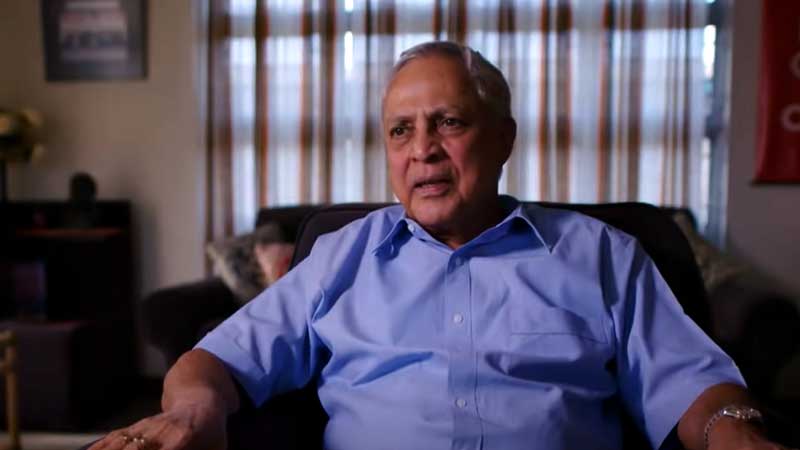
Fiji Labour Party, Mahendra Chaudhry says it is a sad state of affairs and the Economy Minister, Aiyaz Sayed-Khaiyum should accept the truth and stop questioning the credibility of government departments when their reports do not suit his political agenda.
Chaudhry says sacking a person without giving the CEO of the Fiji Bureau of Statistics, Kemueli Naiqama the right to defend himself is disgraceful, shameful and unethical.
Chaudhry says by any standards, the 2019-2020 Household Income and Expenditure Survey reveals the highly damning socio-economic conditions in the country, more specifically, in relation to the shocking social conditions of the indigenous Fijian community.
However he says this data is already outdated.
He says the social distress and the suffering of the people today is much more acute than it was in 2019, prior to the devastating impact of COVID-19 on the economy and the massive job losses it triggered.
Chaudhry says Aiyaz Sayed-Khaiyum needs to come to terms with the fact that the government, in control of national affairs in the past 14 years, has not only wrecked the economy, it has inflicted untold miseries on the people through its failed policies and gross mismanagement.
He says no amount of rubbishing of statistical data will hide this reality.
Chaudhry says for too long the policy of the government has been to conceal the disparities that exist between the different communities by refusing to publish vital statistical data based on race.
He says the FLP believes this is wrong as in a plural society comprising several different ethnic communities, it is vital that socio-economic data is available to show how government policies are affecting each group – whether they are benefitting or receiving a fair share of State resources.
Chaudhry says social justice and fair opportunities for all is an essential pillar of the principles on which the Labour Party is founded.
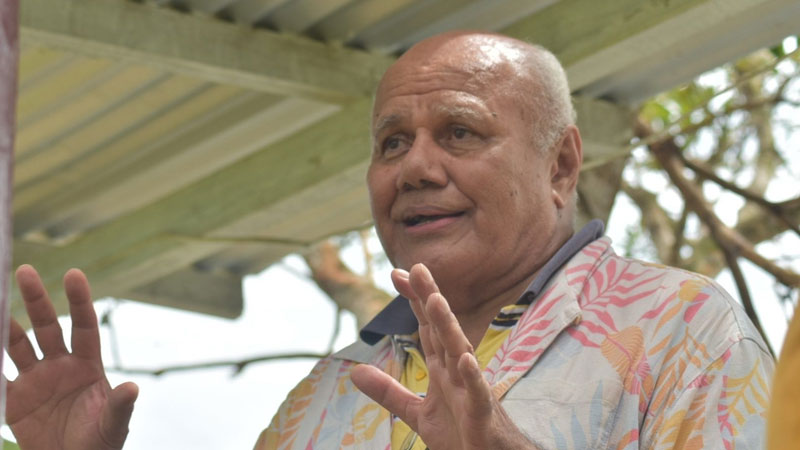
SODELPA Leader, Viliame Gavoka says to hear that the Fiji Bureau of Statistics CEO, Kemueli Naiqama, was unceremoniously dismissed and escorted off premises for the poverty report in Fiji, says a lot about the type of democracy we have in Fiji.
Gavoka says SODELPA wants the Fiji Bureau of Statistics to have independence from any undue outside influence, especially from a government that has been hyping about a boom that many knew was not true.
He says the collection, compilation, analysis, abstraction and publishing of statistical information relating to the economic and general activities must be carried out without fear and SODELPA tells the Attorney General and the FijiFirst, ‘hands off’.
Gavoka says let the truth be told as we do not want to live under an illusion.
He says it is shameful hearing the report that the CEO of the Bureau of Statistics was escorted out of his office.
The SODELPA Leader says the Bureau of Statistics in democracies are responsible for promoting and safeguarding the production and publication of official statistics which serve the common good.
He says it is independent of ministers and instead report directly to Parliament.
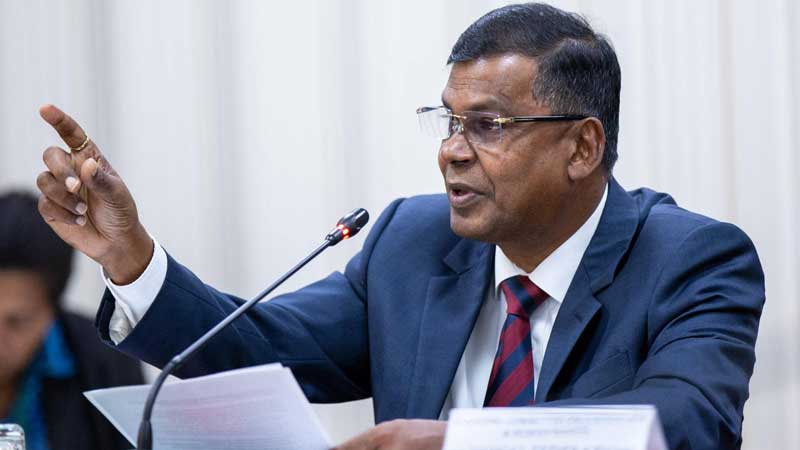
National Federation Party Leader Professor Biman Prasad says the termination of Fiji Bureau and Statistics CEO Kemueli Naiqama’s contract shows the dictatorial and military-style operation by the government.
Prasad says the government is removing good people who they think are not doing according to what the government wants.
He says the press conference by Attorney General Aiyaz Sayed-Khaiyum to attack the Bureau shows that they were not happy with the results because it looked bad for the government.
Prasad says the preliminary report by the Bureau which came out in February said that around 30% of the people live within the poverty line, and this was accepted by the government.
Prasad also says that the Bureau has been conducting this kind of surveys over so many years.
He says they use the 3 to 4 percent sample which is better than the sampling size used in Australia and New Zealand.
Prasad adds that the only reason Sayed-Khaiyum is not happy with the report is that that is the reality on the ground and it shows the incompetency of the government in dealing with poverty issues.

The CEO of the Fiji Bureau of Statistics, Kemueli Naiqama has been sacked.
A government statement now says the Ministry of Economy, through the Acting Permanent Secretary, Shiri Goundar has terminated the contract of the CEO of the Fiji Bureau of Statistics, for failure to comply with Section 5 of the Statistics Act 1961.
The statement says in an unfortunate blow to the Bureau’s credibility, Naiqama endorsed the publication of unverifiable information in the Housing Income and Expenditure Survey 2019-2020 relating to ethnicity and religion – data that was revealed to be extrapolated from erroneous sources and which exceeded the established scope of the survey’s data collection.
It says by exceeding the scope of data collection and ignoring fact-based methodology, Naiqama breached the terms of his contract with the Ministry.
Under his employment contract, Naiqama will be paid all salary and accrued entitlements for the period up to 15th September 2021.
We have received information that some officials escorted Naiqama out of his office earlier this afternoon.
Calls made to his office were referred to the Ministry of Economy.
Last night, Minister for Economy, Aiyaz Sayed-Khaiyum raised serious concerns about the ethnic and religious data released by the Fiji Bureau of Statistics in the 2019-2020 Household Income and Expenditure Survey.
Sayed-Khaiyum says CEO of the Fiji Bureau of Statistics has not acted in line with government policy and the law.
The Minister says there was a sample of 6,000 households from 199,688 households which is 3 percent of the population. He says the question that needs to be asked is how was the sample size derived from the 6,000 households on the basis of ethnicity.
Sayed-Khaiyum says the 2017 census data was used as a survey frame although the 2017 census had no reliable ethnic data, which make these statistics unreliable.
The Attorney General says the report is flawed.
We have been unable to get comments from Naiqama.
Under the Statistics Act 1961 which was updated in 2016, the Minister for Economy appoints the Government Statistician.
Section 5 of the Act also says that with the approval and following the direction of the Minister for Economy, the Government Statistician shall collect statistics relating to any matter listed in a schedule in the act.
The Fiji Bureau of Statistics 2019-2020 Household Income and Expenditure Survey confirms 29.9 percent of Fijians, or about 258,000 individuals in 45,724 households, lived under the Basic Needs Poverty Line of $41.91 per adult equivalent per week.
This means that three out of ten Fijians were living in poverty in 2019-2020, with rural poverty still much higher than urban poverty.
According to the Bureau of Statistics, 160,450 people in rural areas are living in absolute poverty while 97,602 people in urban areas are living in absolute poverty.
The bureau says poverty was higher in rural areas standing at 41.5 percent than urban areas at 20.4 percent, with 62.2 percent of the poor living in rural areas.
Based on the bureau’s poverty estimates and distribution, 192,977 iTaukei, 58,933 Indo Fijians and 6,143 from the others population makeup are living in absolute poverty. This means the iTaukei made up 74.8 percent of those people living in absolute poverty, Indo Fijians made up 22.8 percent while other communities made up 2.4 percent. It has also been revealed that 134,060 males and 123,992 females were living in absolute poverty when the survey was conducted from February 2019 to February last year.

People’s Alliance Party Leader, Sitiveni Rabuka has branded the Attorney General, Aiyaz Sayed-Khaiyum’s outbursts as stupid after Sayed-Khaiyum’s comments regarding the Fiji Bureau of Statistics and it’s 2019-2020 Household Income and Expenditure Survey.
Rabuka says Sayed-Khaiyum should not just go around blasting people whenever information is revealed.
The former Prime Minister says it is sad to see the government does not agree with the statistics done by it’s own people.
He also says it is concerning how the CEO of the Fiji Bureau of Statistics, Kemueli Naiqama has been removed.

Fiji Labour Party, Mahendra Chaudhry says it is a sad state of affairs and the Economy Minister, Aiyaz Sayed-Khaiyum should accept the truth and stop questioning the credibility of government departments when their reports do not suit his political agenda.
Chaudhry says sacking a person without giving the CEO of the Fiji Bureau of Statistics, Kemueli Naiqama the right to defend himself is disgraceful, shameful and unethical.
Chaudhry says by any standards, the 2019-2020 Household Income and Expenditure Survey reveals the highly damning socio-economic conditions in the country, more specifically, in relation to the shocking social conditions of the indigenous Fijian community.
However he says this data is already outdated.
He says the social distress and the suffering of the people today is much more acute than it was in 2019, prior to the devastating impact of COVID-19 on the economy and the massive job losses it triggered.
Chaudhry says Aiyaz Sayed-Khaiyum needs to come to terms with the fact that the government, in control of national affairs in the past 14 years, has not only wrecked the economy, it has inflicted untold miseries on the people through its failed policies and gross mismanagement.
He says no amount of rubbishing of statistical data will hide this reality.
Chaudhry says for too long the policy of the government has been to conceal the disparities that exist between the different communities by refusing to publish vital statistical data based on race.
He says the FLP believes this is wrong as in a plural society comprising several different ethnic communities, it is vital that socio-economic data is available to show how government policies are affecting each group – whether they are benefitting or receiving a fair share of State resources.
Chaudhry says social justice and fair opportunities for all is an essential pillar of the principles on which the Labour Party is founded.

SODELPA Leader, Viliame Gavoka says to hear that the Fiji Bureau of Statistics CEO, Kemueli Naiqama, was unceremoniously dismissed and escorted off premises for the poverty report in Fiji, says a lot about the type of democracy we have in Fiji.
Gavoka says SODELPA wants the Fiji Bureau of Statistics to have independence from any undue outside influence, especially from a government that has been hyping about a boom that many knew was not true.
He says the collection, compilation, analysis, abstraction and publishing of statistical information relating to the economic and general activities must be carried out without fear and SODELPA tells the Attorney General and the FijiFirst, ‘hands off’.
Gavoka says let the truth be told as we do not want to live under an illusion.
He says it is shameful hearing the report that the CEO of the Bureau of Statistics was escorted out of his office.
The SODELPA Leader says the Bureau of Statistics in democracies are responsible for promoting and safeguarding the production and publication of official statistics which serve the common good.
He says it is independent of ministers and instead report directly to Parliament.

National Federation Party Leader Professor Biman Prasad says the termination of Fiji Bureau and Statistics CEO Kemueli Naiqama’s contract shows the dictatorial and military-style operation by the government.
Prasad says the government is removing good people who they think are not doing according to what the government wants.
He says the press conference by Attorney General Aiyaz Sayed-Khaiyum to attack the Bureau shows that they were not happy with the results because it looked bad for the government.
Prasad says the preliminary report by the Bureau which came out in February said that around 30% of the people live within the poverty line, and this was accepted by the government.
Prasad also says that the Bureau has been conducting this kind of surveys over so many years.
He says they use the 3 to 4 percent sample which is better than the sampling size used in Australia and New Zealand.
Prasad adds that the only reason Sayed-Khaiyum is not happy with the report is that that is the reality on the ground and it shows the incompetency of the government in dealing with poverty issues.
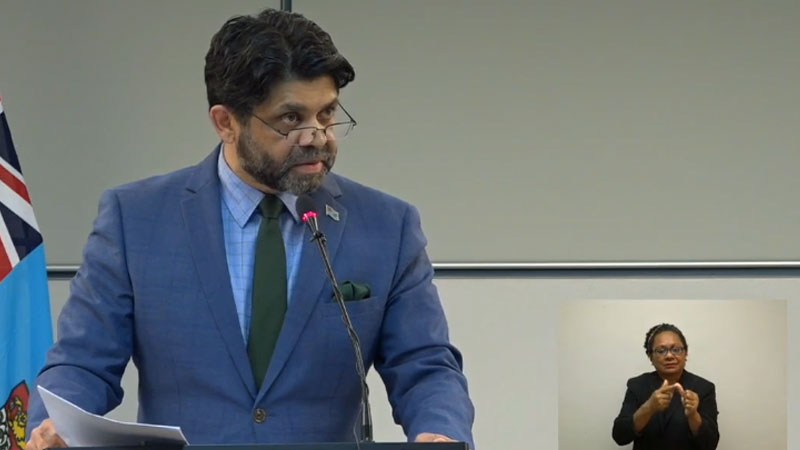
Attorney General and Minister for Economy Aiyaz Sayed-Khaiyum says the data released by the Fiji Bureau of Statistics in their 2019-2020 Housing Income and Expenditure Survey cannot be relied upon and he says there are huge integrity issues in respect of how they chose the sample.
Sayed-Khaiyum says there was a sample of 6,000 people from 199,688 families.
The Attorney General says they are not challenging poverty statistics because they want to know as much about it as possible and address the issue of poverty.
He says what they are challenging is the reliability of this kind of statistics and it has exposed the Bureau that they are now carrying out ethnic analysis based on a flawed system.
Sayed-Khaiyum says if we are going to start having compassion for people based on their ethnicity then we are losing our sense of humanity.
The Attorney General says if we look at the releases put out by some of the political parties, they have immediately jumped on the ethnic bandwagon.
He says it is unfortunate that the Bureau has released the results of the 2019-2020 Housing Income and Expenditure Survey with ethnic and religious breakdown.
The Minister for Economy says in the report there is a map that shows where these samples were taken from and a number of them are from the interior, rural or maritime areas.
Sayed-Khaiyum says if the Bureau is basing this survey on the 2017 population census, then this is highly questionable because the 2017 census had no reliable ethnic data.
He says former Government Statistician Epeli Waqavonovono had said in 2018 that there was no reliable collection of data on ethnicity in the 2017 census and as a result no data on ethnicity could be accurately released.
The Minister for Economy says Waqavonovono had also said that many enumerators failed to ask for the respondents ethnic background and the data was instead based on the assumption of the enumerators.
Sayed-Khaiyum says the report has not delved deeply into how they assumed that for these 6,000, they have some sort of ethnic representation.
He adds the report also has some basic mistakes.
The Attorney General says they appreciate any independent office carrying out a proper professional analysis of any data.
Sayed-Khaiyum says many people do not know that the government approved the new methodology of moving away from using the traditional income measure for welfare analysis to using consumption expenditure for poverty measurement.
He says this does not only look at how much money you have.
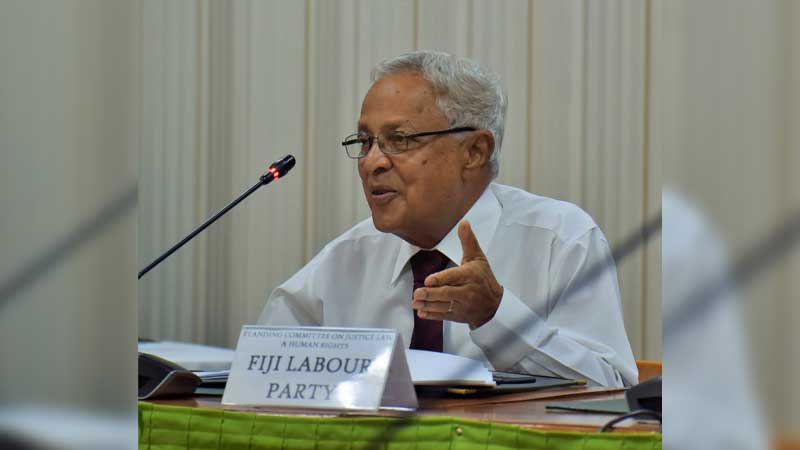
Fiji Labour Party Leader, Mahendra Chaudhry says it is absolutely shocking that the iTaukei population constitute 75 percent of the 258,053 people living in poverty in our country.
According to the Fiji Bureau of Statistics Housing Income and Expenditure Survey 2019-2020, 30 percent of Fiji’s population lived in poverty with Indo Fijians comprising 23 percent of this compared to 75 percent of the iTaukei.
Chaudhry says these are pre-COVID figures and are already outdated.
He says the situation today as a result of the devastating impact of COVID-19 on the economy, would be much worse with the rate of poverty close to 50 percent.
Chaudhry further says if people living on the edge of poverty were taken into consideration, the figure could be as high as 60 percent.
He says the deteriorating social conditions of the indigenous Fijian community is alarming.
In a statement, Chaudhry says in the years before the 2006 coup, the difference in poverty levels among the iTaukei and the Indo Fijian population was negligible.
He says in other words, there were as many poor Indo Fijians as poor iTaukei.
The former Prime Minister says this enormous gap between the two major communities now is unsettling and could have very serious ramifications in terms of social stability. Chaudhry says the iTaukei could see themselves as being marginalized in their own land which could lead to resentment with serious political repercussions.
He also says we have to ask ourselves how this huge gap was created and according to him, it shows that the iTaukei community is being neglected by the government.
Chaudhry says the survey also showed an alarmingly high level of poverty in the rural sector (62 percent) as opposed to 37 percent in the urban centres. He says this again is a reflection of the government’s policies (or lack of it) for the rural sector.
According to the FLP Leader, the deteriorating state of rural infrastructure and the neglect of agriculture and other primary resources, have had a marked impact on the income of the rural people. He says Government policies have been too lopsided with a heavy emphasis on tourism.
Fijivillage has approached Minister for Economy, Aiyaz Sayed-Khaiyum and Minister for Women, Children and Poverty Alleviation, Rosy Akbar for comments on the Fiji Bureau of Statistics Household Income and Expenditure Survey 2019-2020 and on the work being done to address poverty in the country. They are yet to respond.
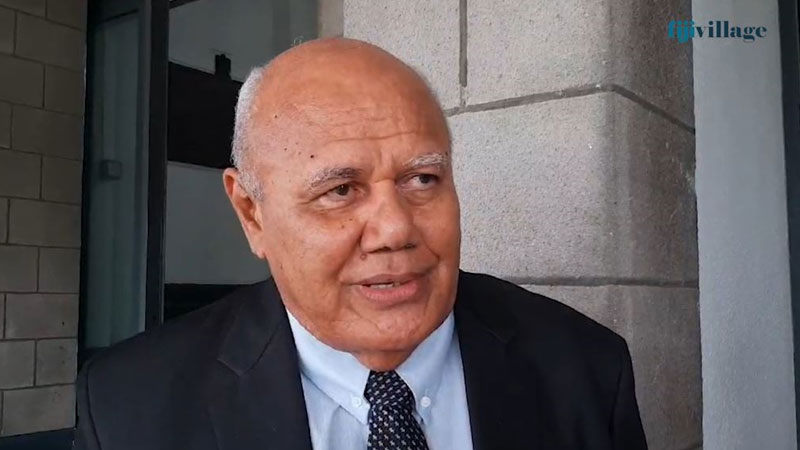
SODELPA Leader, Viliame Gavoka says the 2019-2020 Household Income and Expenditure Survey has shocked them to their core as he says on ethnic basis, 76 percent of the poor are iTaukei and by religion 78 percent of the poor are Christians.
Gavoka says this was in 2019 and 2020 and one can imagine what it is like in 2021 with the COVID-19 pandemic.
He adds SODELPA has always decried the poverty of the iTaukei, calling it as the ‘elephant in the room’.
The SODELPA Leader says it looms large and cannot be ignored, but that is exactly what the FijiFirst Government has been doing by ignoring it.
He says one wonders about the Bainimarama boom.
Gavoka further says this is very serious and SODELPA will insist that poverty of the iTaukei is central to the discussions in Fiji.
He says they will chart their own policies on the way forward to combat poverty.
SODELPA has also shown appreciation to the Fiji Bureau of Statistics for factoring ethnicity in the report.
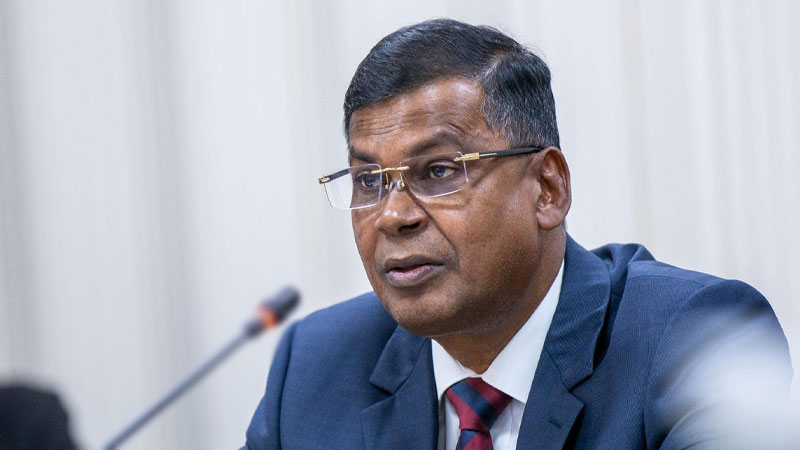
National Federation Party Leader, Professor Biman Prasad says the fact that 29.1%t of the Fijian population were in poverty before the COVID-19 pandemic was alarming and he believes that the “Bainimarama Boom” was a myth and a vote-buying gimmick.
Prasad says government has always bragged about the so-called 9 years of unprecedented growth and boom, yet, poverty increased from 28.1% that was established by the 2013-2014 Household Income Expenditure Survey to 29.9%nt in less than 6 years.
He further says undoubtedly, it has increased to 50% because an estimated 20% would have fallen into poverty because of massive unemployment.
Prasad adds and those already in poverty are likely to have slid into abject poverty especially in rural areas and informal settlements in urban and peri-urban areas after the outbreak of COVID-19 resulted in severe economic decline.
Prasad says it is absolutely clear that government’s social wage policy in terms of welfare assistance, other allowances like water, electricity subsidies and a restrictive list of free medicine, tuition-free education and freebies before the 2018 elections did not alleviate poverty because statistics by government’s own official agency don’t lie.
He adds instead of uplifting the lives and livelihood of people, the monetary assistance was used for consumption due to the exorbitant cost of living of food and medication.
Prasad says we now have an impoverished nation where 50% of our people may be struggling to put food on the table for their children and families. Prasad also says however, this government is clueless on how to provide meaningful assistance and all it is good at is bragging about their failed policies and patting each other’s backs.
He adds a change of leadership and a new direction and vision is needed, and the NFP is ready to rebuild lives and heal the fractured nation.
We have sent questions to Minister for Women, Children and Poverty Alleviation, Rosy Akbar on the work of the ministry to deal with people affected by poverty.
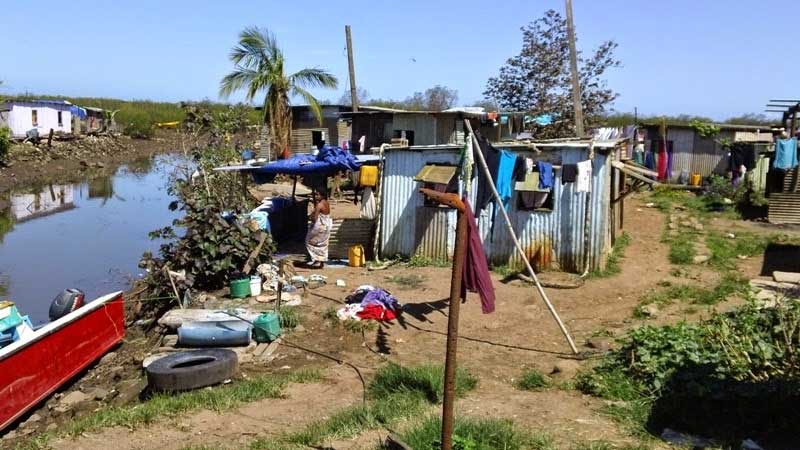
The Fiji Bureau of Statistics 2019-2020 Household Income and Expenditure Survey confirms 29.9 percent of Fijians, or about 258,000 individuals in 45,724 households, lived under the Basic Needs Poverty Line of $41.91 per adult equivalent per week.
This means that three out of ten Fijians were living in poverty in 2019-2020, with rural poverty still much higher than urban poverty.
According to the Bureau of Statistics, 160,450 people in rural areas are living in absolute poverty while 97,602 people in urban areas are living in absolute poverty.
The bureau says poverty was higher in rural areas standing at 41.5 percent than urban areas at 20.4 percent, with 62.2 percent of the poor living in rural areas.
Based on the bureau’s poverty estimates and distribution, 192,977 iTaukei, 58,933 Indo Fijians and 6,143 from the others population makeup are living in absolute poverty.
It has also been revealed that 134,060 males and 123,992 females were living in absolute poverty when the survey was conducted.
Poverty also varied by education and labour market characteristics of the household.
Households whose head had higher levels of education had lower poverty rates, although the returns to education were much lower in rural areas than in urban areas.
Poverty rates were also lowest among households whose heads were employers or involved in salaried work, particularly outside of the agriculture industry.
The bureau says three distinct groups of poor emerge from the data, each with their own challenges and policy needs.
The first group is the urban poor, whose primary needs are improved education and skills in order to access productive jobs. The second group is the rural poor in Eastern and Northern division, who are the most multi-dimensionally deprived, lacking access to basic needs such as grid electricity and piped water. This second group also suffer from lack of access to skilled jobs, which means the returns to education are much lower.
The third group is the rural poor in Western and Central divisions, who are somewhat in the middle of the first two groups: having better access to public services due to being located on the main island of Viti Levu, but still predominantly agricultural, with many working in the low wage jobs such as farm labourers and cane cutters.
The Fiji Bureau of Statistics says food poverty in Fiji is rare in national terms, but still prevalent in some areas.
The food poverty estimates based on the food poverty line of $1,335.36 per adult equivalent per year or $25.68, was 6.4 percent for 2019-2020.
The prevalence of food poverty was much higher in rural areas standing at 11.1 percent, while 2.6 percent in urban areas and was more prevalent in the Eastern division at 13.7 percent than elsewhere.
Food poverty measures the cost of buying a balance diet that provides 2,228 calories per adult equivalent per day.
Also in 2019-2020, three out of every ten adults and children or 30 percent were multidimensionally poor – they lived on low incomes and were deprived of essential things that they needed.
Over a quarter of a million people (256,000) in Fiji are multidimensionally poor.
Multidimensional poverty rates in rural areas stand at 38 percent, which is higher than in urban areas of Fiji which stand at 23 percent.
The survey was conducted in the period February 2019 to February 2020 before the onset of the COVID-19 pandemic in Fiji.

More than 50 percent of the population reside in the urban areas in the country according to the population estimates based on the 2019-2020 Household Income and Expenditure Survey.
The Fiji Bureau of Statistics says the survey shows that 477,500 of the Fijian population reside in the urban areas with a total estimated Fijian population of 864,132.
Central and Western Division recorded the most population with 42 percent and 38 percent respectively.
By geographical area, majority of the Fijian population resided in the urban Central division (30%) followed by Western urban (20%) and rural Western (18%).
The bureau says population distribution by sub population groups shows that the iTaukei contribute to around 62 percent of the total population, followed by Indo-Fijian with 34 percent and the others with 4 percent.
It says Fiji has a very young population.
Fiji’s population distribution is pyramid-shaped, as over half of our population in 2019-2020 are under the age of 30 years, and less than 10 percent of the population are over the age of 60 years.
Population distribution among male and female are fairly distributed across the different age-groups.
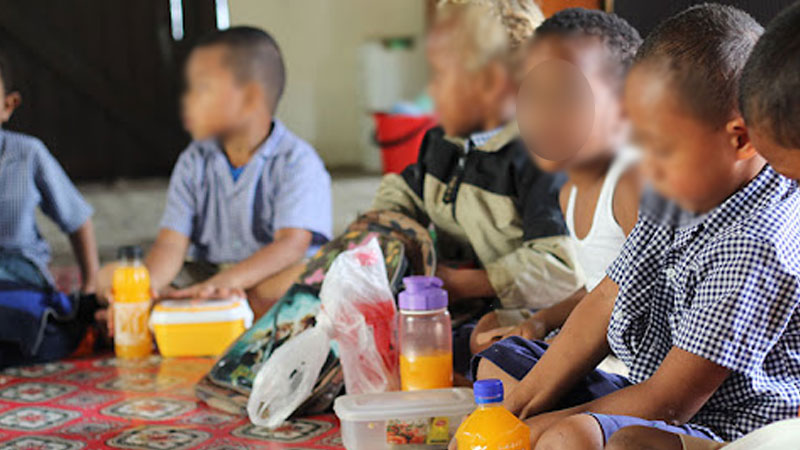
2% of children in Fiji were deprived of three meals a day in 2019-2020 according to the Fiji Bureau of Statistics.
According to the 2019-2020 Household Income and Expenditure Survey, this means that a large majority of children in Fiji did not go hungry due to a lack of money.
However the bureau says this does not mean that all children have an adequate diet as one child in five does not have one meal with meat, chicken or fish or vegetarian equivalent daily. This means their diet may be deficient in protein which is important for healthy growth and development in childhood.
The bureau also says almost one in five school-aged children in Fiji are educationally deprived, their parents cannot afford for them to participate in school trips and school events that cost money or their children do not have a suitable place at home to study or do their homework.
It says these children are disadvantaged compared with richer children.
About three in ten children do not have their own beds and bedding at home and their parents cannot afford for them to have celebrations on special occasions such as birthdays, Christmas or religious festivals.
Many children in Fiji are deprived with new clothing and their parents (23%) cannot afford to buy them new properly fitting shoes or some new, not second-hand clothes (28%).
It also says on the other hand, a significant number of adults were socially deprived.
The survey says 16% cannot afford to have celebrations on special occasions such as birthdays, Christmas or religious festivals, and about one in five adults do not have enough money to meet social/traditional obligations (Church/Family Functions etc) or visit friends and family in hospital or other institutions or get-together with friends/family for a drink/meal at least once a month.
The most common coping strategies when households are faced with adverse shocks in their income or consumption include seeking help from friends and relatives, changing consumption patterns to less preferred foods and withdrawal from savings.
The prevalence of government support in response to shocks was much higher in rural areas, with over half (55%) of shock-affected households receiving some amount of help from government.
Shock-affected households in urban areas were much more reliant on savings and adjustments in consumption patterns. Although help from friends and relatives still featured heavily in urban areas (57%), help from government was much lower than the national average (17%).
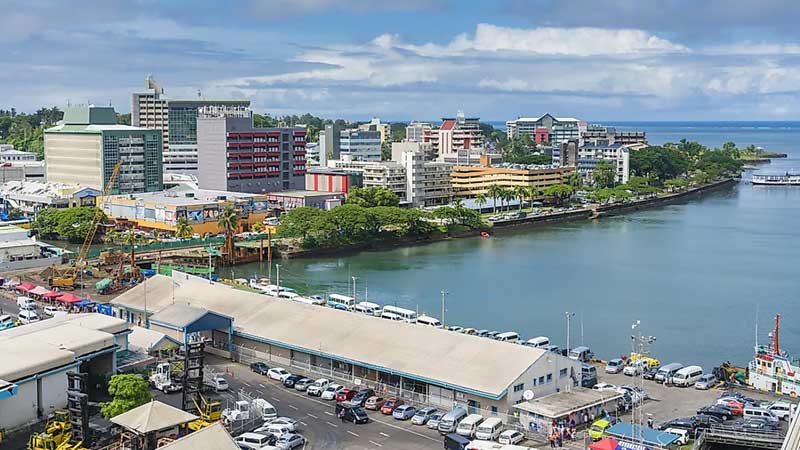
The Fiji Bureau of Statistics 2019-20 Household Income and Expenditure Survey confirms that three out of ten Fijians were living in poverty in 2019-2020, with rural poverty still much higher than urban poverty.
Based on the Household Income and Expenditure Survey, 29.9% of Fijians, or about 258,000 individuals in 45,724 households, lived under the Basic Needs Poverty Line of $41.91 per adult equivalent per week.
The bureau says poverty was higher in rural areas standing at 41.5% than urban areas at 20.4%, with 62.2% of the poor living in rural areas.
Poverty also varied by education and labour market characteristics of the household.
Households whose head had higher levels of education had lower poverty rates, although the returns to education were much lower in rural areas than in urban areas.
Poverty rates were also lowest among households whose heads were employers or involved in salaried work, particularly outside of the agriculture industry.
The bureau says three distinct groups of poor emerge from the data, each with their own challenges and policy needs.
The first group is the urban poor, whose primary needs are improved education and skills in order to access productive jobs. The second group is the rural poor in Eastern and Northern division, who are the most multi-dimensionally deprived, lacking access to basic needs such as grid electricity and piped water. This second group also suffer from lack of access to skilled jobs, which means the returns to education are much lower.
The third group is the rural poor in Western and Central divisions, who are somewhat in the middle of the first two groups: having better access to public services due to being located on the main island of Viti Levu, but still predominantly agricultural, with many working in the low wage jobs such as farm labourers and cane cutters.
The Fiji Bureau of Statistics says food poverty in Fiji is rare in national terms, but still prevalent in some areas.
The food poverty estimates based on the food poverty line of $1,335.36 per adult equivalent per year or $25.68, was 6.4% for 2019-2020.
The prevalence of food poverty was much higher in rural areas standing at 11.1%, while 2.6% in urban areas and was more prevalent in the Eastern division at 13.7% than elsewhere.
Food poverty measures the cost of buying a balanced diet that provides 2,228 calories per adult equivalent per day.
Also in 2019-2020, three out of every ten adults and children or 30% were multidimensionally poor – they lived on low incomes and were deprived of essential things that they needed.
Over a quarter of a million people (256,000) in Fiji are multidimensionally poor. Multidimensional poverty rates in rural areas stand at 38%, which is higher than in urban areas of Fiji which stand at 23 %.
Stay tuned for the latest news on our radio stations

